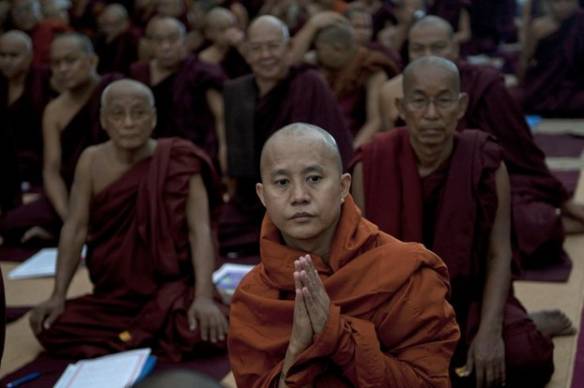It’s election year in Myanmar, the big test for the country’s aspiring democratic transition. Among the spirited national debates there are four controversial pieces of legislation currently under consideration in Myanmar’s Assembly of the Union parliament (the Pyidaungsu hluttaw). These reportedly aim to protect race and religion. But in truth, the bills represent a setback for religious freedom and women’s rights and — if adopted — are likely to deepen existing religious divides, threaten the reform agenda and stir violence prior to the elections.

The controversial Buddhist nationalist monk Wirathu attends a conference about religious violence in Yangon in 2013.
A rising Buddhist nationalist movement has lobbied for the bills, in particular the ‘Organisation for the Protection of Race and Religion’ (known in Myanmar under the Burmese acronym ‘Ma Ba Tha’), a group related but not identical to the infamous 969 movement. The organisation has collected more than a million signatures in support of the laws meant to protect Buddhism against a perceived threat from Islam.
Since 2012, Myanmar has been marred by ethno-religious violence, particularly against the Muslim Rohingya population in Rakhine state but also against Muslim communities in other parts of Myanmar. More than a hundred thousand people have fled their homes, hundreds have been killed and thousands of Muslim owned houses and businesses have been torched and destroyed. The proposed Ma Ba Tha laws must be viewed in light of this violence.
Read more at East Asia Forum, where the complete text was published 12 March 2015.